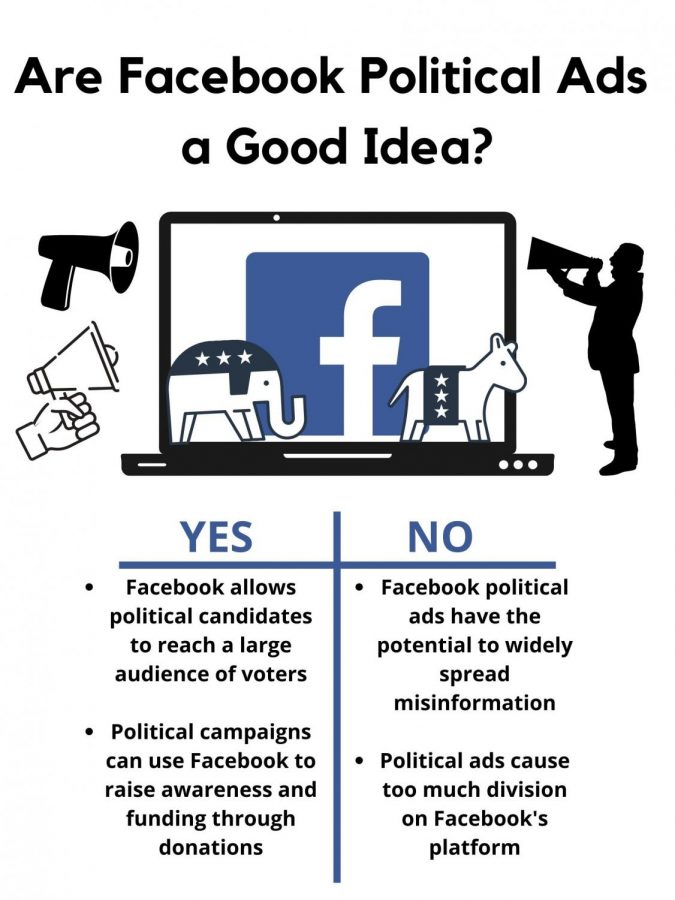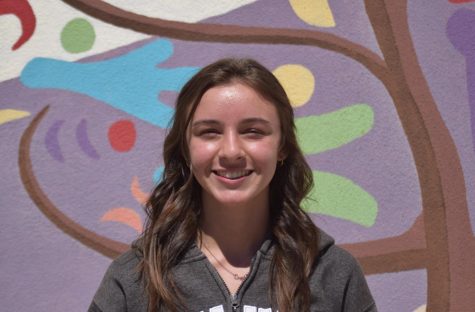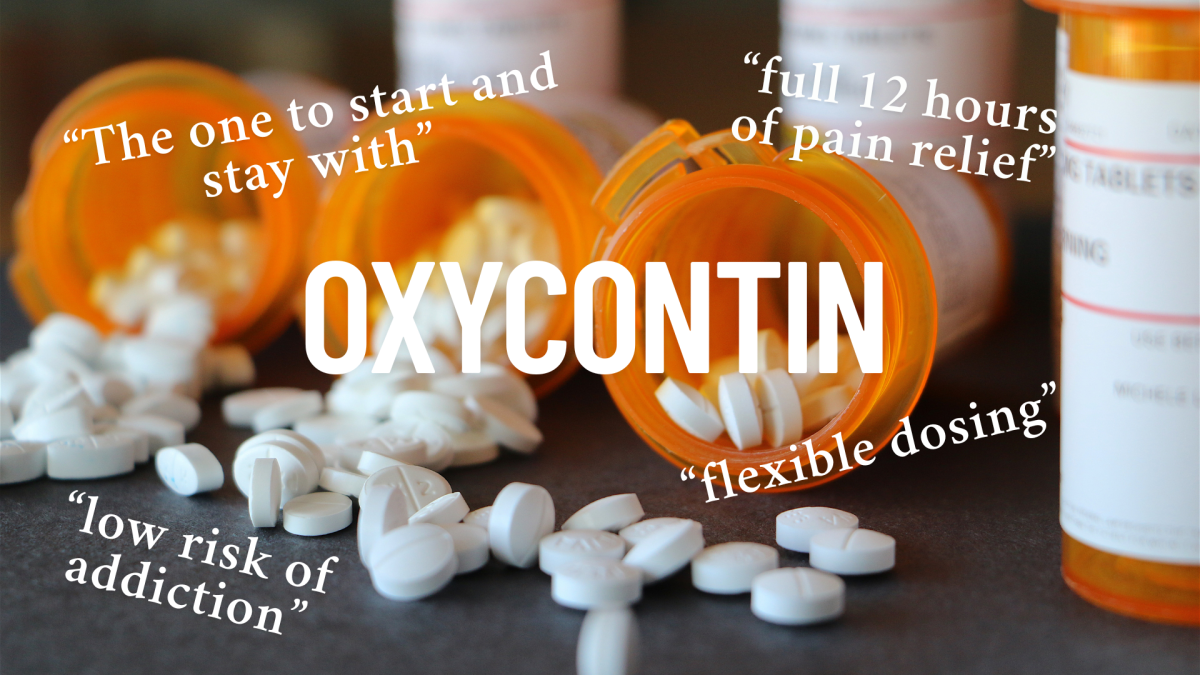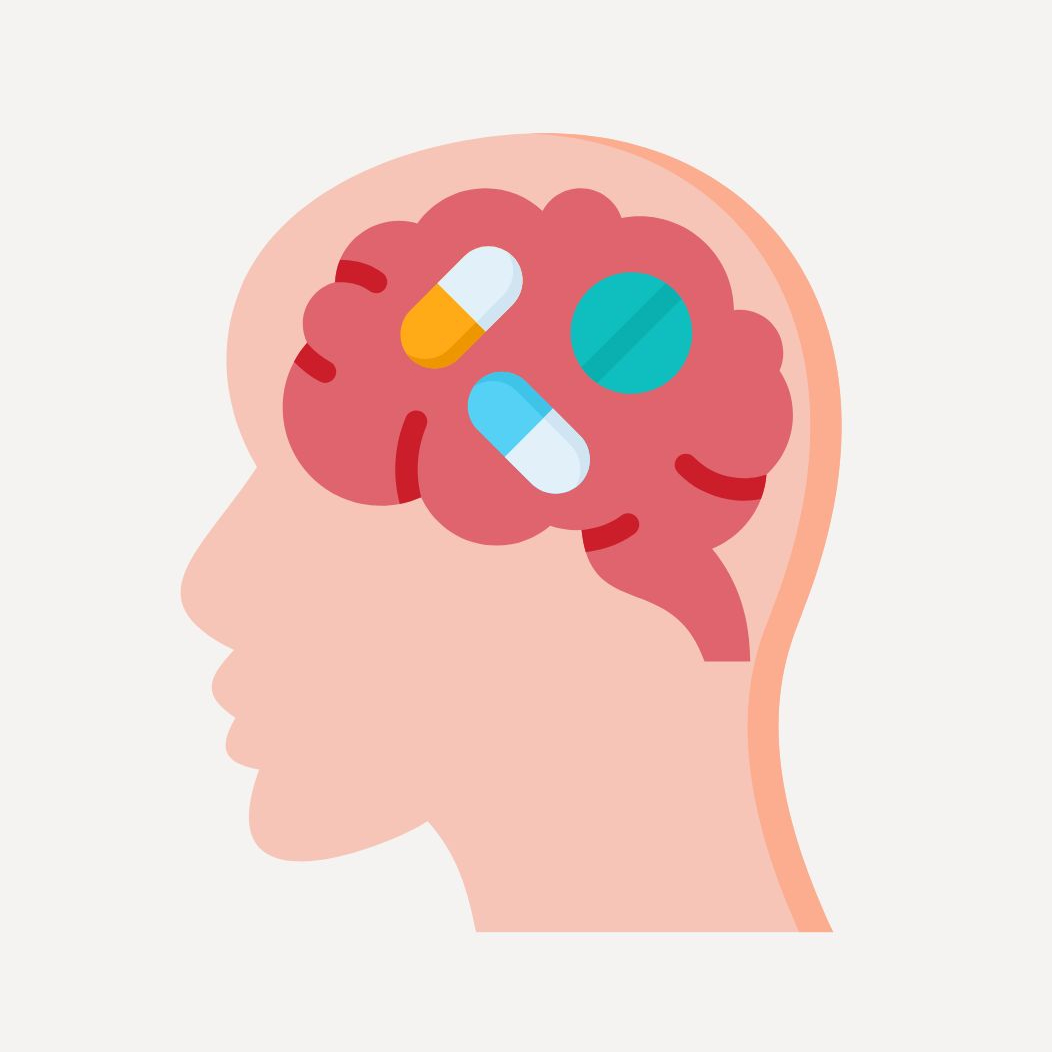Are political ads on Facebook a good idea?
Facebook stopped banning political ads on March 4th.
March 26, 2021
Earlier this month, on March 4th, Facebook ended the ban on political ads on its platform. Facebook had banned political ads indefinitely one week before the presidential elections last year to prevent the spread of misinformation.
Facebook is the most popular social media site in the US and globally, with 2.8 billion worldwide users logging in each month. It has become a major platform for political campaigning in recent years. Using Facebook, candidates have the ability to reach billions of individual voters with ads appealing to them. This has made it a prime source of advertisements that can spread misinformation and division amongst Americans and citizens of other countries. The ban on political ads lasted on and off since October.
“I believe our democracy is strong enough to withstand this challenge and deliver a free and fair election — even if it takes time for every vote to be counted. We’ve voted during global pandemics before. We can do this. But it’s going to take a concerted effort by all of us — political parties and candidates, election authorities, the media and social networks, and ultimately voters as well — to live up to our responsibilities,” said CEO of Facebook Mark Zuckerberg,
There is a danger posed by political ads on the site, leading many to be a bit wary.
“I am a true believer in the importance of a ‘marketplace of ideas’, but I also think that technology has enabled people to, too often, dress up fiction as fact,” said AV Comp Civics coach Stacey Sklar.
Supporters of keeping ads on Facebook argue that they should be kept in the future because it is beneficial to less-experienced, aspiring politicians. Without ads, newer politicians who want to start a campaign would find difficulty in using Facebook to spread awareness of their ideas and to raise money.
“When a candidate is running for the first time, they’re starting grassroots fundraising from scratch, they’re recruiting volunteers from scratch, they’re building their name ID from scratch. If there were more options that were as powerful as Facebook, it’d be less worrisome, but Facebook is often the No. 1 way to reach those audiences,” said Democratic senior digital adviser Caitlin Mitchell, who assisted both Joe Biden and Elizabeth Warren’s presidential campaigns.
People have argued that the potential risks of political ads outweigh the proposed benefits.
“I think it is OK for them to have ads, but I think they should be very obviously marked as paid advertisements…Social media is a great vehicle for the proverbial unknown to launch a grassroots campaign, but I would like to eliminate the elements of deception,” said Sklar.
Others have argued that it isn’t necessarily even Facebook’s responsibility to slow the spread of misinformation.
“The problem isn’t ads on Facebook per se. Advertisements are always [potentially] dangerous regardless of the medium. What matters is citizens’ level of civic education and critical thinking,” said AP Government teacher Samuel Weaver.
Whatever others’ opinions may be, Facebook itself is still uncertain of what their future policy on political ads will be. The lifting of the ban will be used as a testing period for Facebook to adjust their restrictions.
“We’ve heard a lot of feedback about this and learned more about political and electoral ads during this election cycle. As a result, we plan to use the coming months to take a closer look at how these ads work on our service to see where further changes may be merited,” said Facebook in a blog post prior to lifting the ban.






